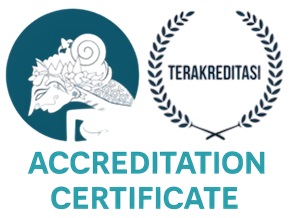The Impact Of Gedang Begele Policy On Local Democracy In Sibak Village
Abstract
This study aims to analyze the Gedang Begele policy regarding village head elections and its implementation in Sibak Village, Mukomuko Regency. Mukomuko Regency, located in Bengkulu Province, Indonesia, was formed from the expansion of North Bengkulu Regency. It consists of 15 sub-districts, one of which is Ipuh District, which encompasses 16 villages, including Sibak Village.The village head election process in Sibak Village reflects the social, political, and cultural dynamics of the local community. In 2021, village head elections were held simultaneously across Mukomuko Regency, involving 47 villages, including Sibak Village. This election process fosters an inclusive and representative form of governance by allowing each group within the community to actively participate in village democracy through a rotating system.The method employed in this study is a literature review, utilizing a qualitative approach to analyze various studies in order to understand the existing challenges and opportunities. The findings concerning the Gedang Begele policy within the traditional leadership system in Sibak Village reveal that the selection and transition of traditional leaders in the Pekal community are based on the principle of rotation (begele). This system encompasses three main leadership elements: the traditional leader, the village head, and the imam/khadi, each fulfilling distinct roles in the realms of custom, government, and religion.The socio-cultural environment of Sibak Village embodies local wisdom values that prioritize equality and deliberation in appointing leaders while promoting harmony among community groups. This rotational mechanism not only upholds traditional customs but also aligns with the needs of village governance and religious practices, creating an integrated framework.Consequently, the implementation of the Gedang Begele policy provides a platform for the interaction of customary norms, village government regulations, and religious practices, all of which are interconnected and sustainable. Analyzing the village head election in Sibak Village through the lens of Gedang Begele demonstrates that traditional leadership remains relevant in today's social context. By maintaining a rotational system and involving all societal elements, Sibak Village can preserve social stability and uphold cultural values that have endured over time.
Downloads
Copyright (c) 2025 Nur Izzah Sholihah, Rekho Adriadi, Titi Darmi, Rosidin Rosidin

This work is licensed under a Creative Commons Attribution-ShareAlike 4.0 International License.











